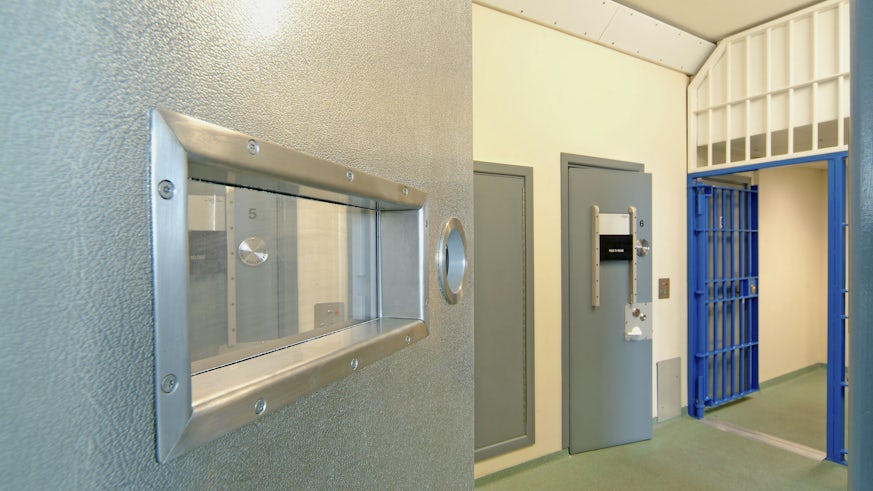Improved support needed for PTSD in Welsh prisons
10 April 2024

Prisoners with PTSD and C-PTSD (complex post-traumatic stress disorder) in Wales may be falling through gaps in support because of variations in screening and interventions in Welsh prisons, finds new research.
The study, by Cardiff University and the University of Greenwich in collaboration with Traumatic Stress Wales, has uncovered variations in support for prisoners with PSTD and C-PTSD in Wales, meaning that some prisoners aren’t getting the help needed to rehabilitate them or reduce reoffending in the future.
Dr Natasha Kalebic, Cardiff University’s School of Medicine who led the study, said: “Post-Traumatic Stress Disorder and Complex Post-Traumatic Stress Disorder are prevalent in prison populations. Both often go undetected and untreated, and prisoners who have already suffered previous trauma can be re-traumatised during imprisonment. This can ultimately impact how prisoners are rehabilitated during their prison sentence and their likelihood for reoffending in the future.
For our research, we wanted to understand how prisons across Wales are supporting prisoners with traumatic stress, if they are actively screening prisoners for PTSD or C-PTSD and what interventions are being offered.
The researchers found that whilst all six male prisons in Wales can provide interventions and relevant medical prescriptions to help with PTSD and C-PTSD, only half are actively screening for the mental health conditions and there are variations in the use of trauma-focused therapies recommended by NICE.
The team say this is leading to prisoners not getting the support needed and wide differences in support between each prison.
Clare Crole-Rees, Consultant Psychologist and Honorary Research Associate at Cardiff University, said: “Prisoners are a traumatised population, and often are re-traumatised in prison.
“Our research suggests that some prisoners are serving their sentence without specialist support – and are potentially being released into the community with increased trauma.
“We know that PTSD is a risk factor for reoffending, and therefore proper intervention and treatment for post-traumatic stress plays an important role in rehabilitating prisoners as well as possibly reducing reoffending in the future.
We found that half of the prisons in our study use a trauma-informed approach within their establishment. It’s important that we address any gaps in access to support for PTSD in prison and operate prisons with a trauma-informed approach – which is important for both the prisoners and the prison staff, due to the potentially traumatising nature of prison-environments.
The research also uncovered a number of barriers that prevent prisoners from being able to access specialist support, including levels of staffing, resources and access to training.
“Shorter prison sentences can also be a barrier, as prisoners don’t have time to complete their therapy or they would finish their sentence, and the support wouldn’t follow them out into the community.” added Dr Kalebic.
The team suggest the development of a pathway of PTSD and C-PTSD in the prison system, involving frontline staff and specialists to help improve detection and treatment of the condition.
Professor Andrew Forrester from Cardiff University School of Medicine, leader of the POLAR project – a project that is developing integrated intervention pathway in prisons, said: "Post traumatic stress disorder is a significant issue amongst people in prison, but historically mental health services have not been fully resourced to meet these needs. It is therefore important to understand current service provision in prisons in Wales, including variations within that, if we are to seek to move forward and improve the overall service offer. This study represents the first stage of this work."
Dr Kalebic said: “More research is needed to understand the UK picture as well as the where and when treatment should be given. However, our study has given us a valuable insight into ways that we can improve support for PTSD and C-PTSD in prisons in Wales.”
We are now going on to design and evaluate improved clinical pathways that can be implemented in prisons in the future. This ultimately will aid in the rehabilitation of prisoners and hopefully help reduce reoffending in the future.
The research, Variations in services and intervention pathways for traumatic stress in Welsh prisons: A national survey, was published in Medico-Legal Journal. The research was part of the POLAR project, led by Professor Andrew Forrester from the Cardiff University School of Medicine, and was conducted in collaboration with Dr Jack Tomlin, Greenwich University, and Traumatic Stress Wales.

